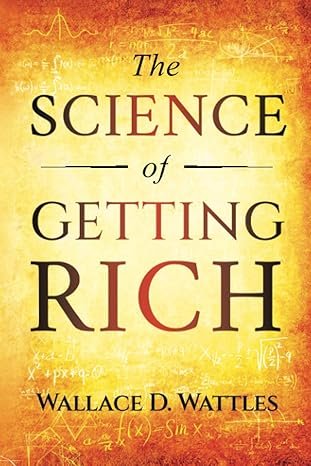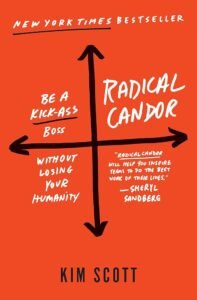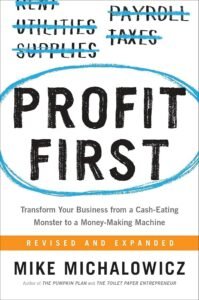Why This Book Matters
Imagine a young professional named Ravi in Mumbai. Despite long hours and a decent salary, he constantly felt stuck. His expenses always matched his income, his savings remained small, and he wondered if real wealth was only for the lucky few. Then one day, he stumbled upon an old book: The Science of Getting Rich by Wallace D. Wattles.
At first, Ravi dismissed it. The book was written in 1910, surely outdated, right? But as he began reading, he realized Wattles wasn’t talking about get-rich-quick schemes—he was offering a practical science of wealth creation based on mindset, gratitude, and focused action. Ravi’s life began to change dramatically, and so can yours.
This book is for anyone who feels stuck financially, anyone who wants more abundance, or anyone searching for a practical way to align success with personal growth.
The Core Principles of The Science of Getting Rich
1. The Right to Be Rich
Wattles begins with a bold claim: every person has the right to be rich. Without money, he argues, it’s nearly impossible to live a full life or develop your body, mind, and soul.
Instead of settling for less, Wattles insists that desiring wealth is not greed—it’s natural and essential for human growth.
👉 Example: Ravi stopped feeling guilty about wanting a bigger home and more travel experiences. He realized his desire for wealth could help him create opportunities not just for himself, but for his family and community.
2. There is a Science of Getting Rich
Wealth isn’t reserved for the lucky or talented—it follows certain laws and principles. Just like physics governs motion, Wattles believed there’s a science to creating wealth.
-
It’s not about extreme talent, luck, or intelligence.
-
It’s about applying consistent methods rooted in thought, gratitude, and action.
👉 Example: Rina, a small boutique owner in Pune, applied Wattles’ principles by focusing on creative service instead of competing with other shops. Within two years, her store became a local favorite.
3. Opportunity is Not Monopolized
Contrary to what many think, no single group, class, or country has a monopoly on wealth. Opportunities exist everywhere, and anyone can access them with the right mindset.
This truth is powerful: no matter your starting point, you can create wealth.
4. The First Principle: Thinking in a Certain Way
According to Wattles, thought is the foundation of wealth. Our minds shape reality. Every invention, business, and innovation started as a thought.
-
Think in terms of abundance, not scarcity.
-
See opportunities instead of obstacles.
-
Replace fear with creative vision.
👉 Real-Life Story: When Elon Musk imagined reusable rockets, people laughed. Yet his creative thought eventually transformed the aerospace industry. This echoes Wattles’ idea: all riches begin in the mind.
5. The Power of Gratitude
Gratitude is not just a feel-good practice—it’s a magnet for wealth. A grateful mind attracts positive outcomes and keeps us focused on opportunities rather than limitations.
Wattles emphasizes:
-
Be thankful for what you have.
-
Be thankful for challenges, because they make you grow.
-
Gratitude builds faith and strengthens focus.
👉 Example: Ravi began a daily gratitude journal, writing three things he was thankful for each morning. This simple habit made him more optimistic, confident, and motivated to take action.
6. Acting in a Certain Way
Dreams without action are empty. Wattles stresses the importance of efficient, focused action.
-
Don’t just wish—work.
-
Take today’s opportunities instead of waiting for tomorrow.
-
Do every task with excellence, no matter how small.
👉 Example: Rina stopped procrastinating. She reorganized her store displays, improved customer service, and worked consistently. Within months, sales improved noticeably.
7. Creating vs. Competing
Wattles warns against competition. Competing for limited resources keeps you in scarcity mode. Instead, focus on creation.
-
Create more value.
-
Innovate instead of copying.
-
Help others grow while you grow.
👉 Lesson: When Ravi stopped comparing his career to peers and focused on creating unique value in his job, promotions and salary hikes followed.
8. The Use of Will Power
Willpower is not about forcing others—it’s about controlling your own thoughts and actions.
-
Use your will to stay focused on your vision.
-
Avoid wasting energy on fear, gossip, or negativity.
-
Channel your willpower into growth.
👉 Example: Instead of debating politics endlessly with friends, Ravi redirected his energy into learning investing. His portfolio grew steadily, proving Wattles’ wisdom.
9. Getting Into the Right Business
Wattles stresses aligning work with your skills, passion, and opportunities. When you love your work and dedicate yourself fully, wealth flows naturally.
👉 Example: Rina realized she loved curating handmade products. By focusing her boutique on eco-friendly crafts, she found both joy and success.
Action Plan – Applying Wattles’ Principles in Your Life
Here’s how you can apply The Science of Getting Rich:
-
Affirm Your Right to Be Rich – Let go of guilt. Abundance is your birthright.
-
Practice Gratitude Daily – Start a gratitude journal.
-
Shift Your Thoughts – Replace fear with creativity.
-
Act Today, Not Tomorrow – Take small but consistent steps.
-
Create Value, Don’t Compete – Focus on innovation and service.
-
Use Your Will Wisely – Stay disciplined, avoid distractions.
-
Choose Work You Love – Passion + skill = wealth.
Biggest Lessons Learned
-
Abundance is for everyone. Opportunity is not monopolized.
-
Your thoughts shape your wealth. Think abundance, not scarcity.
-
Gratitude is the key to attracting more.
-
Action is non-negotiable. You can’t just dream; you must do.
-
Wealth is about creation, not competition.
Step-by-Step Guide – Practical Tips
-
Morning Ritual: Write 3 gratitude notes.
-
Visualization: Spend 5 minutes visualizing your desired wealth.
-
Daily Action: Do one task with excellence.
-
Weekly Reflection: Review your progress and adjust.
-
Long-Term: Invest in skills, relationships, and assets that grow.
Life After Change – The Breakthrough
For Ravi and Rina, life transformed. They crossed the point from constant stress to steady wealth-building. They didn’t just earn more money—they found more freedom, confidence, and purpose.
Final Reflection
Wattles’ book proves one thing: wealth is not luck—it’s a mindset and a method. By aligning your thoughts, gratitude, and actions, you can create the life you truly desire.
Call to Action
Inspired by these stories and Wattles’ timeless wisdom? This is just one journey in our Book to Life series. Pick up The Science of Getting Rich today and take the first step toward your own financial transformation. Don’t just dream of wealth—create it.




